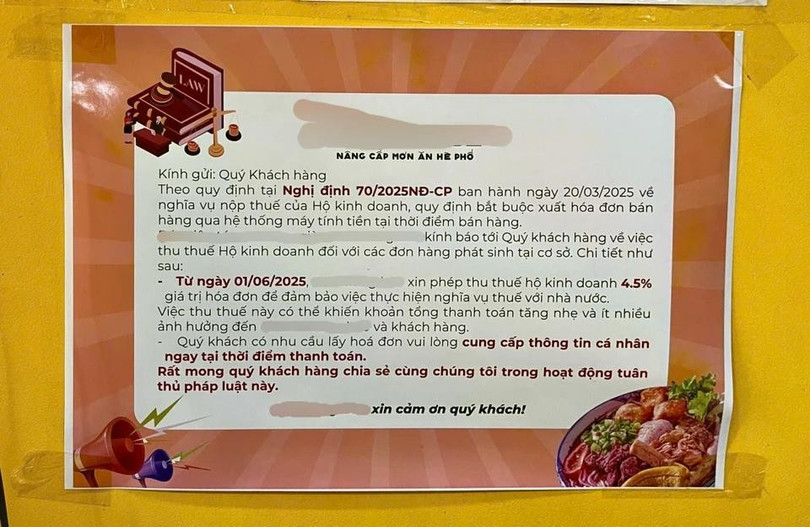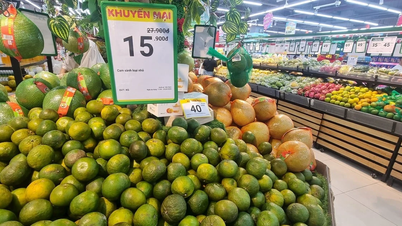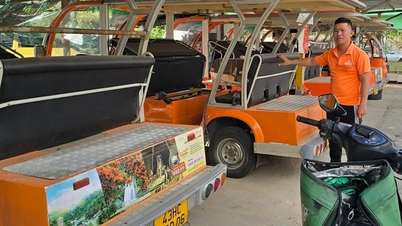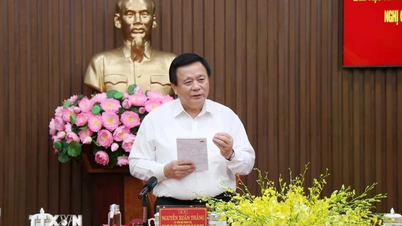
From now until 2026, tax policies for business households and individual businesses will have many notable changes from new regulations in Decree 70/2025 and the revised Law on Value Added Tax (VAT).
Do I have to pay tax when selling iced tea on the sidewalk?
However, not all individuals and business households are "required" to pay taxes as some "rumors" are currently spreading on social networks. Depending on the actual revenue that individuals and business households record each year, the tax payable will be different.
According to current regulations, households and individuals doing business with revenue of 100 million VND/year or less will be completely exempted from value added tax (VAT) and personal income tax (PIT).
From January 1, 2026 onwards, this level will be raised to VND 200 million (equivalent to less than VND 16.67 million/month).
Raising the tax threshold to over 200 million VND is to support small businesses. In the case of street tea vendors and tire repair shops whose annual revenue is less than 200 million VND, equivalent to less than 16.67 million VND/month, they will not have to pay tax or complete procedures for tax declaration and deduction.

According to calculations by the Ministry of Finance , with a tax threshold of 200 million VND/year, the number of households and individuals doing business having to pay VAT will decrease by about 620,653 households, corresponding to a decrease in state budget revenue of 2,630 billion VND/year.
On the contrary, for large-scale businesses and individuals with revenue of VND1 billion/year or more, tax management regulations will be stricter. Specifically, from June 1, this group of businesses and individuals will no longer be allowed to use lump-sum taxes but must use electronic invoices generated from cash registers, and the invoice system must be directly connected to the tax authority.
The tax payable will be calculated on the actual revenue of the business household or individual, replacing the previous lump-sum tax rate.
This regulation mainly applies to industries such as restaurants, hotels, supermarkets, convenience stores, fast-moving consumer goods retail... The goal is to ensure that all revenues are accurately recorded, prevent loss of state budget revenue and create a fair playing field for businesses that pay taxes fully.
Abolish lump-sum tax from 2026
The remaining group of individuals and business households with revenue from over 100 million VND/year to under 1 billion VND/year from now until the end of 2025 will still apply the old tax calculation method (fixed tax), but the Tax Department encourages this group to proactively switch to the form of declaring and paying taxes according to actual revenue.
Because from January 1, 2026, the lump-sum tax method, which means applying a fixed tax rate according to industry and location, will be officially abolished.
Instead, all households and individuals doing business with actual revenue of over 200 million VND/year will have to declare and pay taxes based on actual revenue.
This means that whether you are an individual business or a large or small business, as long as your revenue exceeds 200 million/year, you need to fully record sales data, possibly keep books, use software to declare revenue, and correctly calculate the taxes you have to pay.
VAT is an indirect tax, levied on the final consumer. That is, business households and individuals will collect this tax on behalf of the final buyer when they sell goods and services. According to the General Statistics Office, by the end of 2024, the country will have about 5.5 million business households, contributing 30% of GDP each year.
Source: https://baohatinh.vn/ai-phai-nop-thue-ho-kinh-doanh-post289317.html


























































































![[OCOP REVIEW] Tu Duyen Syrup - The essence of herbs from the mountains and forests of Nhu Thanh](https://vphoto.vietnam.vn/thumb/402x226/vietnam/resource/IMAGE/2025/6/5/58ca32fce4ec44039e444fbfae7e75ec)






Comment (0)